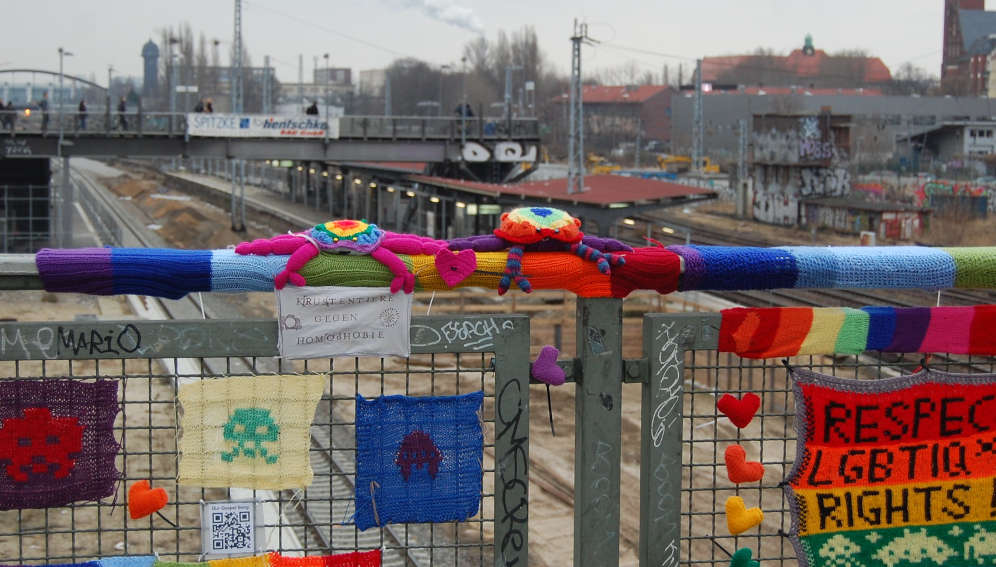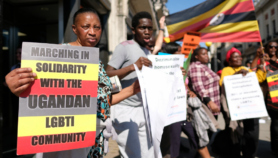06/06/23
Uganda’s anti-gay law sparks global concerns

By: Dann Okoth
Send to a friend
The details you provide on this page will not be used to send unsolicited email, and will not be sold to a 3rd party. See privacy policy.
[NAIROBI] Uganda’s anti-homosexuality legislation, which includes the death penalty for offenders, was signed into law on Monday by President Yoweri Museveni, sparking international condemnation.
The new rule, which had been mooted by the country’s legislators, was passed into law last week (29 May) by President Yoweri Museveni. The law criminalises same sex relationships and imposes harsh penalties, including capital punishment for homosexuals.
U.S. President Joe Biden, in a statement, described the law as a tragic violation of universal human rights that jeopardises Uganda’s prospects for critical economic growth.
He said: “The enactment of Uganda’s anti-homosexuality act is a tragic violation of universal human rights, one that is not worthy of the Ugandan people — and one that jeopardises the prospects of critical economic growth for the entire country.”
The European Union (EU) high representative of the European Union for Foreign Affairs and Security policy, Josep Borrell, also condemned the law, stating that it introduces severe punishments, including the death penalty, which the EU opposes in all circumstances. Borrell emphasised that the law contradicts international human rights standards and Uganda’s obligations under the African Charter on Human and People’s Rights.
“Uganda now runs the risk of losing support from programnes such Global Fund, UNAIDS and PEPFAR. If this happens it’s not the politicians who suffer, but vulnerable children and communities who would no longer access health care for Aids, malaria and tuberculosis.”
Joakim Osur, professor of Gynaecology and vice-chancellor at Amref International University
Aside from the human rights backlash, the new legislation puts Uganda at odds with humanitarian organisations supporting health programmes in the country.
The Global Fund to Fight AIDS, Tuberculosis, and Malaria, the joint United Nations Programme on HIV/AIDS (UNAIDS), and the US President’s Emergency Plan for AIDS Relief (PEPFAR) all condemned the law in a joint statement.
These organisations warned that the law would jeopardise Uganda’s progress in HIV response, hinder health education and outreach efforts to combat AIDS as a public health threat.
“The stigma and discrimination associated with the law have already resulted in reduced access to prevention and treatment services,” the organizations say.
They added that there is a crucial need for trust, confidentiality, and stigma-free engagement for individuals seeking healthcare and held that the principles of access to healthcare without stigma or discrimination is vital to sustain progress in ending AIDS and saving lives.
The Ugandan anti-homosexuality act
Uganda already had a previous anti-homosexual act that was signed by law on February 2014 by President Museveni.
Then new law has taken an even harsher stance on homosexuality, prescribing the death penalty or life imprisonment for same sex relations.
President Museveni initially returned the bill to parliament for reconsideration in May because of legal concerns raised by Uganda’s attorney general Kaafuzi Kargaba, including the clause on capital punishment as Uganda has abolished the use of capital punishment.
However, the bill was overwhelmingly passed by Members of Parliament for a second time.
The law imposes a life sentence for same-sex sexual acts and criminalises individuals identifying as lesbian, gay, transgender, or any other sexual or gender identity that does not conform to traditional male and female roles.
It proposes the death penalty for what it terms “aggravated homosexuality”, including sexual acts involving children, disabled individuals, those coerced against their will, or committed by people living with HIV.
Joakim Osur, an associate professor of sexual and reproductive health and vice-chancellor at Amref International University in Kenya, told SciDev.Net that the legislation could have a ripple effect on vulnerable communities’ access to healthcare.
He highlighted the potential risk of losing support from global health programmes such as the Global Fund, UNAIDS, and PEPFAR.
“If this happens it’s not the politicians who suffer, but vulnerable children and communities who would no longer access health care for Aids, malaria and tuberculosis,” he said.
Osur emphasised that the impact of such a loss would be felt by vulnerable children and communities who would no longer have access to healthcare services for AIDS, malaria, and tuberculosis.
Osur said the new law institutionalises discrimination and will exacerbate the stigma and mental health issues among LGBTQ communities.
This piece was produced by SciDev.Net’s Sub-Saharan Africa English desk.















